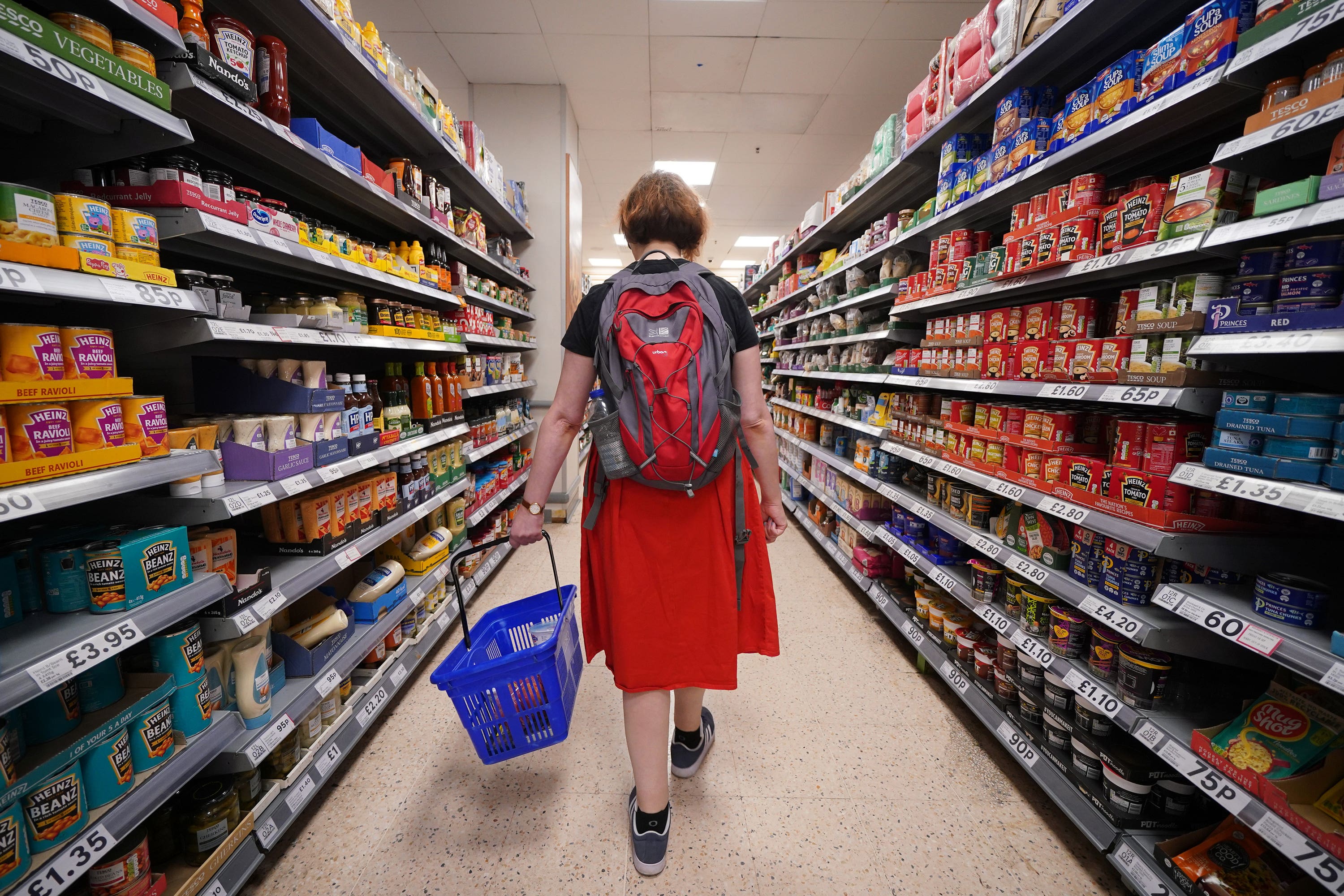Food inflation slows to lowest rate since May 2022
Overall shop price inflation eased to 2.5%, down from January’s 2.9% – its lowest rate since March 2022.

Food inflation has slowed to its lowest rate since May 2022 amid easing energy and fertiliser costs and fierce competition among retailers, figures show.
Food prices were 5% higher than a year ago in February, a marked drop from January’s 6.1% and below the three-month average of 6%, according to the British Retail Consortium (BRC)-Nielsen Shop Price Index.
Price drops for meat, fish and fruit helped drive a slowing of fresh food inflation to 3.4% from January’s 4.9%, well below the three-month average of 4.6% and the lowest since February 2022.
Shop price inflation has slowed and the underlying trend in prices will be downwards over the next few months
Overall shop price inflation eased to 2.5%, down from January’s 2.9%, its lowest rate since March 2022.
Inflation on products other than food remained unchanged at 1.3%, balanced by the price of furniture, electricals and health and beauty products rising while clothing fell as many retailers kept promotions in place to encourage spending.
BRC chief executive Helen Dickinson said: “There was good news for consumers as shop price inflation fell to its lowest rate in nearly two years.
“Easing supply chain pressures have begun to feed through to food prices, but significant uncertainties remain as geopolitical tensions rise.
“Prices of non-food goods will be more susceptible to shipping costs, which have risen due to the re-routing of imports around the Cape of Good Hope.
Mike Watkins, head of retailer and business insight at NielsenIQ, said: “Shop price inflation has slowed and the underlying trend in prices will be downwards over the next few months.
“Since the start of the year, food retailers in particular have reduced prices as well as passing on price cuts coming through supply chains. For high street retailers faced with weaker demand, keeping prices stable over the next few months will be key to encourage customers to spend.”
Bookmark popover
Removed from bookmarks